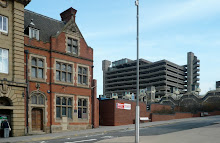The Big Society
curated by Alice Motard
DUNCAN CAMPBELL
MIKE COOTER
RUTH EWAN
MICHAEL FULLERTON
PETER KENNARD
NATHANIEL MELLORS
CAT PHILLIPPS
MATT STOKES
SUZANNE TREISTER
MARK WALLINGER
Galerie Vallois, 36, rue de Seine 75006 Paris
06 May - 04 June 2011
Opening Thursday 05 May 2011
http://www.galerie-vallois.com
Taking its cue from the social manifesto published by the Conservative- Liberal government in the UK, the group exhibition The Big Society examines British society through the civil movements and actions that have marked its contemporary history. To do so, it gathers together ten British artists from various generations whose work addresses the relationships between individuals, communities, and the State by taking up real or fictitious events which have played a significant role in shaping society at large.
The struggle for political power between these three entities is a recurring subject in this exhibition as it reconsiders a number of social conflicts and protest movements in which the tensions arising from conflicting ideologies and visions of society that have affected public life in Britain since the early 20th century expressed themselves. Ruth Ewan recalls the Battle of Cable Street which opposed the police and anti-fascist protesters in London in 1936, Duncan Campbell addresses the Troubles in Northern Ireland at the turn of the 1970s, Peter Kennard evokes the farmers' and miners' strikes which shook the governments of Edward Heath and Margaret Thatcher in the 1970s and 80s, and Cat Phillipps exhibits the "Penny Shields" she designed for the recent March for an Alternative to the budget cuts voted by Parliament. Corresponding with the London Metropolitan Police, Mike Cooter infiltrates the inner workings of State power which, if the conspiracy theories outlined by Suzanne Treister are to be believed, is obsessed with controlling its citizens.
Many of the events addressed in The Big Society were spearheaded by charismatic figures, several of whom are explicitly referred to, such as Alan Turing, the genius mathematician who was persecuted by the British government in the 1950s for his homosexuality (Michael Fullerton), Bernadette Devlin, the Northern Irish MP who led the struggle of the Catholic minority against English occupation in the 1960s (Duncan Campbell), Sylvia Pankhurst, the revolutionary Suffragette who was repeatedly imprisoned for her political activities (Ruth Ewan), and Stella Rimington, the
former head of British counter-intelligence and author of truer-than-life spy novels (Suzanne Treister).
This survey of British society would not be complete without a nod to cultural phenomena that have helped shape its identity. Mark Wallinger's work, for instance, draws an ironic analogy between football supporters and religious fanatics, while Matt Stokes brings back to life the the Northern Sou music movement and Nathaniel Mellors revisits a mythical TV series to project the disquieting vision of egalitarian rule.
The fact that British artists are more than ever interested in re-examining their nation's past in light of its social or cultural conflicts and movements would seem to reflect the post-crash identity crisis that has taken hold of society as Tony Blair's 'Powerhouse UK' is running out of steam. In this respect, the debate on nationality and immigration recently launched by the Conservative majority is an indication of the current malaise to the extent that it raises issues which had hitherto been considered to be off limits. It could therefore be argued that their resurgence in the mainstream public debate illustrates the nation's struggling attempts to come to terms with its changed identity. Seen under this angle, the Tories' 'Big Society' is a manifest of doubt, its calculated modesty forming a striking contrast with Labour's 'Cool Britannia'.
Image:
Matt Stokes
Long After Tonight (Terry), 2005 - 2006
C-type on diasec,
80 x 80 cm
(MS0024)
courtesy of the artist and Workplace Gallery, UK






